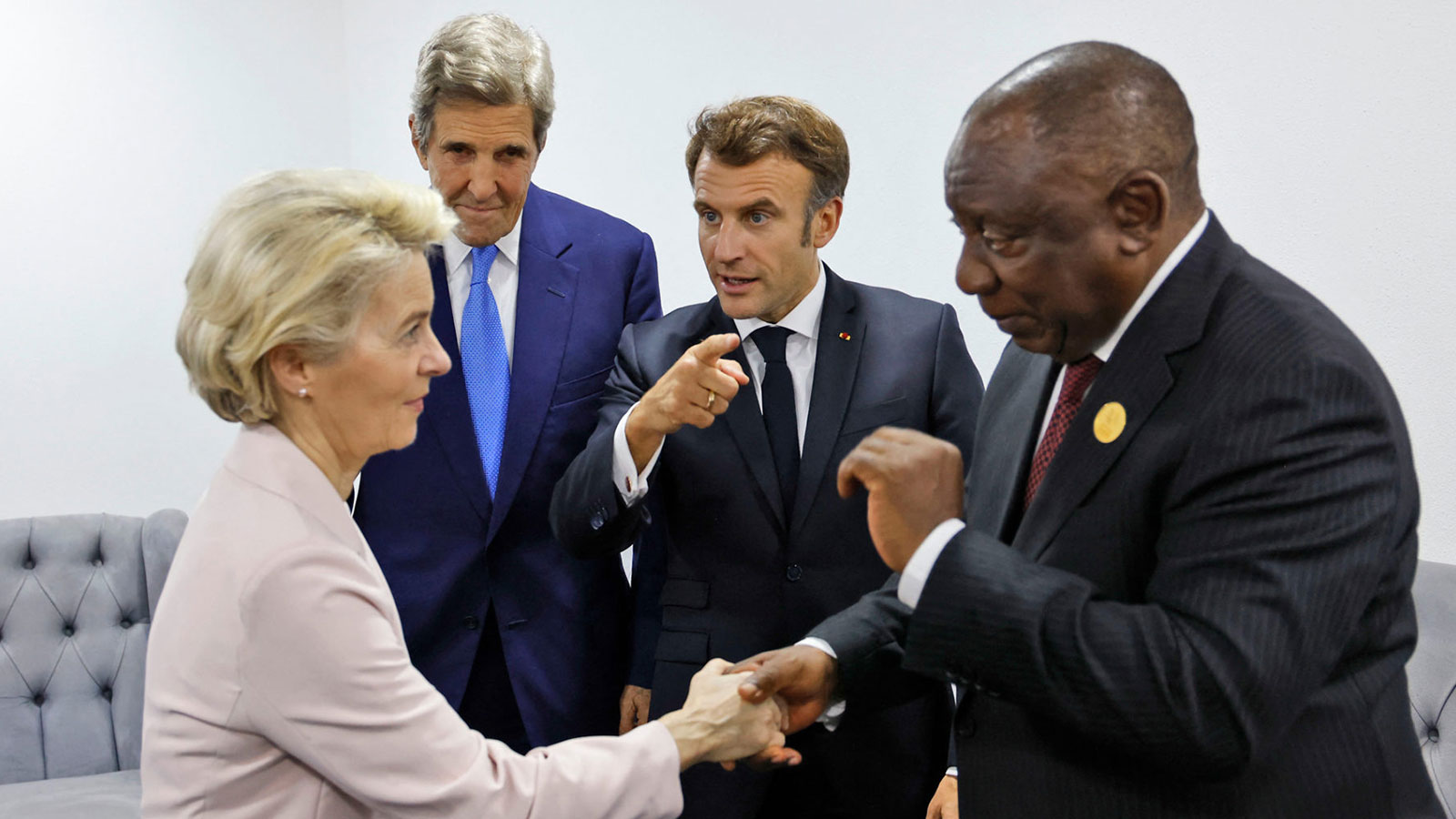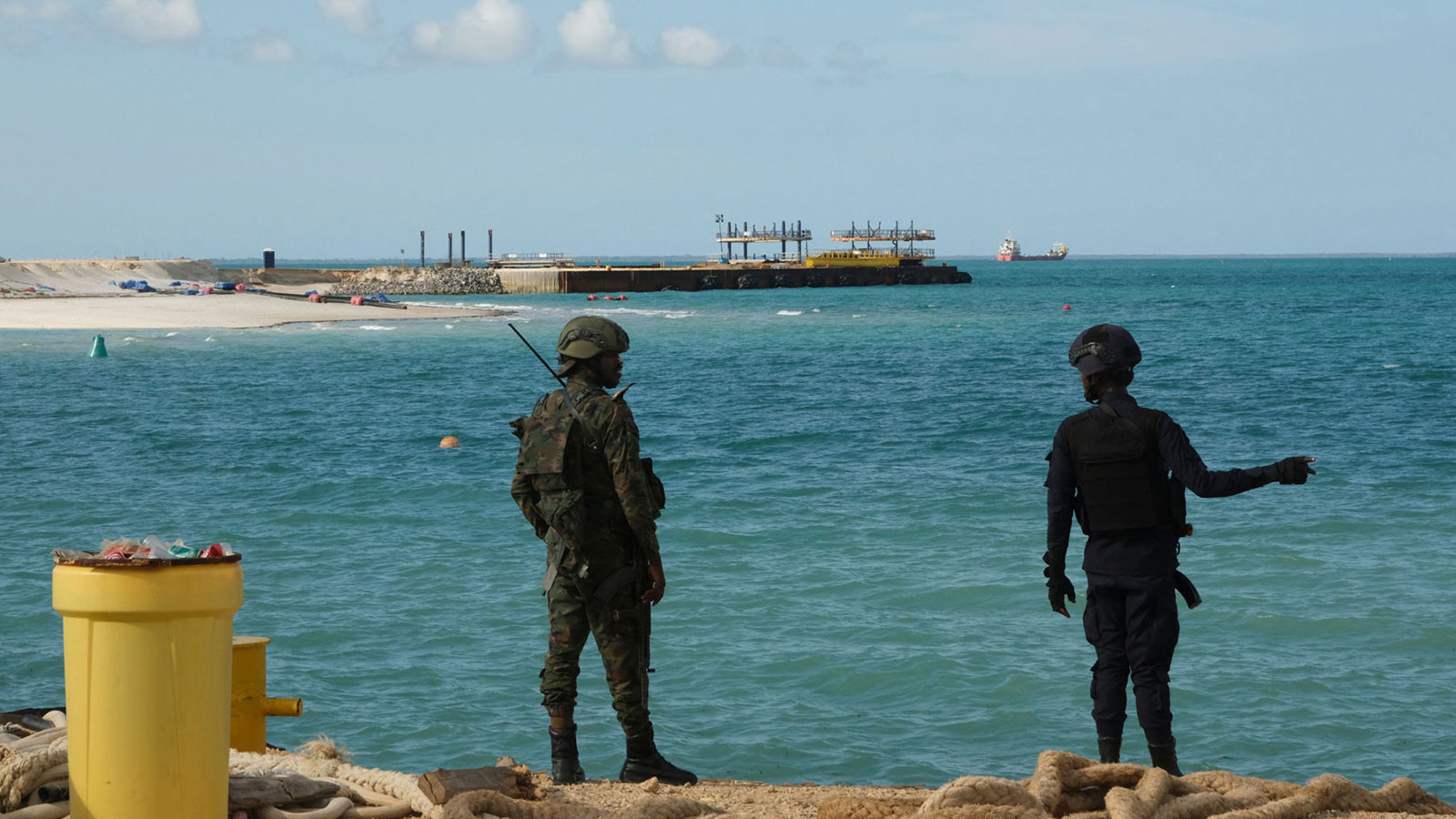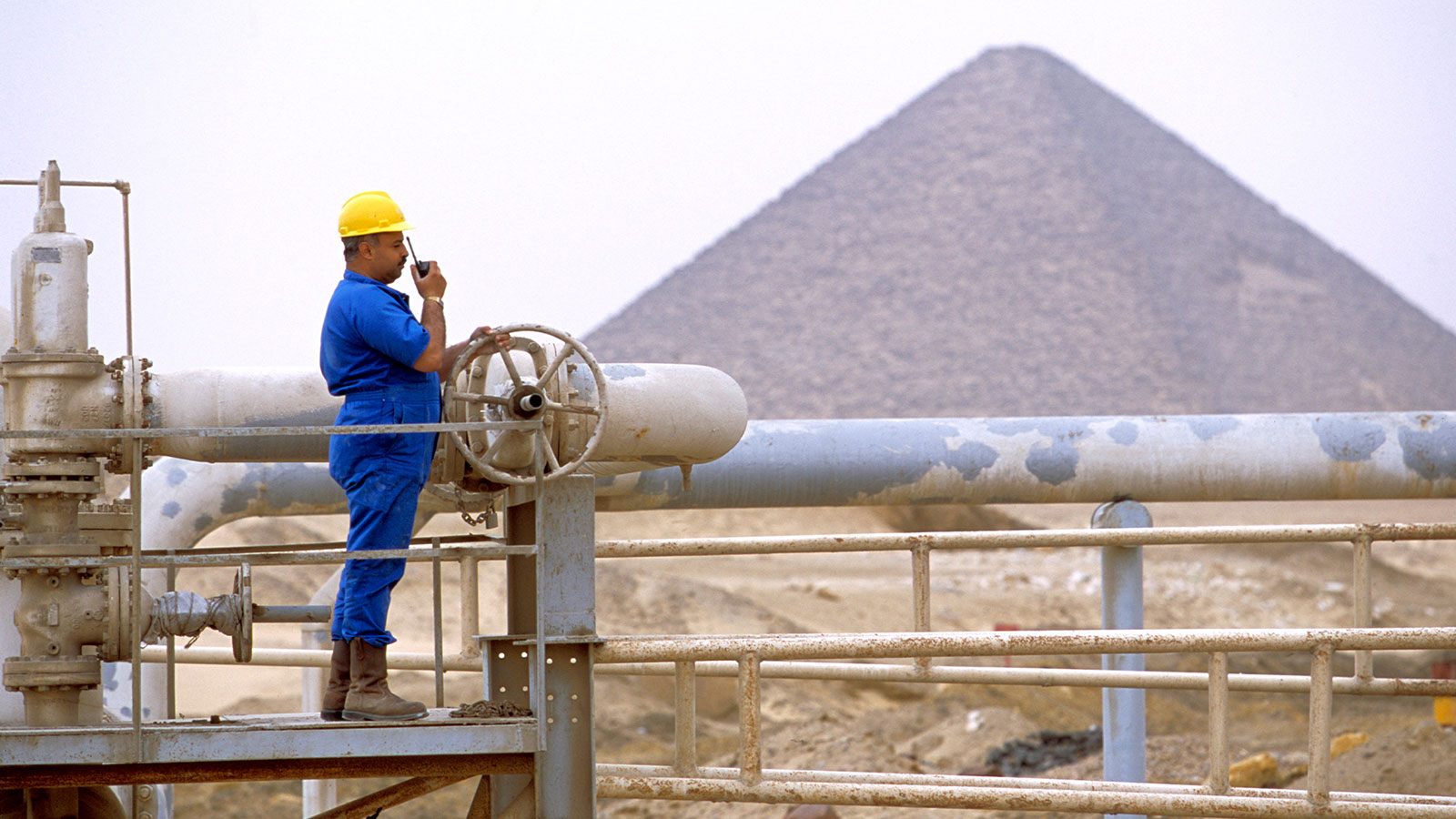War in Ukraine has forced Europe to seek out fossil fuels in Africa. But the economic benefits for Africans are questionable and the environmental consequences are being ignored.
By Ruth Michaelson, Coda Story —
Twelve years after Mozambique discovered the largest natural gas reserves in sub-Saharan Africa off the coast of the northern province of Cabo Delgado, the country witnessed its first exports. Bulk carrier British Sponsor, owned by the British energy giant BP, sailed away from an offshore gas terminal managed by the Italian company Eni, laden with gas bound for Europe.
“Today, Mozambique enters the annals of world history as one of the countries that export liquefied natural gas, which, in addition to representing an alternative source of supply, contributes greatly to the energy security of the countries with the highest consumption,” declared Mozambican president Filipe Nyusi. This moment, he insisted, “must bring pride to all Mozambicans.”
Yet life in Cabo Delgado has increasingly brought pain and fear, with thousands displaced to refugee camps to the south following vicious ongoing battles between government troops and militants linked to the Islamic State, with both sides accused of war crimes. Four thousand people have been killed and more than a million people have fled their homes in the five years of fighting. The abandoned buildings bear the scars of an insurgency that the Mozambique government — even when bolstered by forces from neighboring states and mercenaries from the Kremlin-backed Wagner Group — cannot control.
TotalEnergies, one of a nexus of American and European energy companies present in gas-rich Cabo Delgado, declared force majeure at their site last year, following a nearby attack, and ceased operations. Rights groups accuse the government and its supporting forces of focusing on security for global gas exporters over the local population, amid a new worldwide urgency to find gas supplies following Russia’s invasion of Ukraine. “There is a prioritization of optics for the world to see that these areas are fine and therefore investment should come, rather than a prioritization of basic conditions for people to go back,” Zenaida Machado of Human Rights Watch told CNN.
That urgency was on full display at COP27 in Sharm el-Sheikh, the Egyptian resort town where dozens of heads of state and tens of thousands of delegates gathered to ostensibly tackle the climate crisis. European Council president Charles Michel began his address to the conference with the warning that the “Kremlin has chosen to make energy a weapon of mass destabilization.” And, he added gravely, “it is pointing this weapon directly at Europe and at Europe’s global energy markets.”
European Commission president Ursula von der Leyen, whose trip to Sharm el-Sheikh was punctuated by numerous energy deals, addressed the climate talks with what she presented as a solution to Europe’s energy crisis. “For Europe,” she said, “the answer is RePowerEU,” the bloc’s plan to phase out its dependence on Russian fossil fuels in part by scaling up the use of renewable energy. “Let us not take the highway to hell,” Von der Leyen said somberly, seemingly quoting ancient Australian rockers AC/DC. “Let us earn the clean ticket to heaven.”
But even amidst talk of energy independence through ratcheting up renewable energy supplies within Europe, the bloc is on a renewed hunt for natural gas reserves across Africa.
Von der Leyen’s clean ticket to heaven seems to stop at Europe’s borders. It includes plans to increase cooperation to build a gas pipeline from Azerbaijan, potential new supply deals with Algeria and Qatar, as well as accelerating orders of LNG from Egypt and Israel. RePowerEU also notes the need to “explore the export potential of sub-Saharan African countries like Nigeria, Senegal and Angola.” This divide between encouraging growth in renewables as part of a green transition within Europe and what some have labeled a “dash for gas” outside the EU’s borders has provoked anger and alarm among climate advocates.
The British Court of Appeal is due to hear a legal challenge from Friends of the Earth, who argue that the British government’s decision to approve $1.15 billion in financing for TotalEnergies’ LNG project in Cabo Delgado is incompatible with the commitments made in the Paris Agreement to limit global warming to 1.5 degrees Celsius.

Ursula von der Leyen, President of the European Commission, and South African President Cyril Ramaphosa greet each other at COP27 as Emanuel Macron, President of France, and John Kerry, US special envoy for the climate, look on. Ludovic Marin/Pool/AFP via Getty Images.
Exploration or broadening extraction in gas-rich countries like Mauritania, Senegal, Mozambique or Egypt put the world on a path to accelerate even faster past acceptable limits of global warming and into dangerous levels where the African continent will bear the brunt of the initial consequences. African nations are some of the most vulnerable to the impacts of global warming despite accounting for, at most, 3.8% of global carbon dioxide emissions annually.
Evidence of climate change is already visible in many places across the continent, including flooding that displaced over 1.4 million people in Nigeria, in the same months as severe drought across the Horn of Africa that has led to a growing famine that risks affecting 82 million people in eastern Africa according to the U.N. “Unfortunately, we have not yet seen the worst of this crisis. If you think 2022 is bad, beware of what is coming in 2023,” said leading World Food Programme official Michael Dunford. He added that the Horn of Africa “is experiencing the worst drought in over 40 years.”
Fears about the consequences for Africa as the world remains on track to surpass 1.5 degrees Celsius of global warming have done little to stop business interests discussing the continent’s gas reserves, estimated to be around 13% of the world’s total. “Wind and solar are not going to help Africa industrialize,” said Joseph McMonigle, the secretary general of the International Energy Forum, at an industry gas conference in Dubai in early November. “They need to have access to hydrocarbons.” The African Union expressed a similar sentiment before COP27, pointing to natural gas as a short-term measure to solve the problem of 600 million Africans currently living without electricity.
Many of those looking to Africa as a business opportunity have prioritized gas for export over improving living conditions for those on the continent. “The energy crisis that emerged during the pandemic and that was exacerbated by the war in Ukraine has given East African gas greater appeal,” wrote Carole Nakhle, an energy economist and CEO of the London-based analysis firm Crystol Energy. She noted that countries such as Tanzania or Mozambique “may benefit over the medium term from Europe’s efforts to diversify its energy sources and thus see stronger export demand from the region, especially given the European Union’s recent decision to classify gas as sustainable.”
Gas producing nations such as the COP27 host Egypt have been part of this effort to rebrand natural gas as sustainable, claiming it will form an essential part of the transition away from fossil fuels — despite being a fossil fuel. Cairo hosted a meeting of the Gas Exporting Countries Forum (GECF) in late October, shortly before COP27, welcoming officials from Russia, Iran, Qatar and nearby Algeria, a key natural gas supplier to Europe. The conference also welcomed officials from Angola and Mozambique, which sits atop an estimated one percent of the entire world’s gas reserves.
Egyptian officials were keen to present gas as the solution, rather than part of the problem. “We are convening at a critical time when global efforts are dedicated towards achieving the energy trilemma for security, sustainability and affordability. As the cleanest hydrocarbon [fossil] fuel, natural gas is seen as the perfect solution that strikes the right balance, and will continue to play a key role in the future energy mix,” Egypt’s Minister for Petroleum and Mineral Resources Tarek El Molla, told the conference.
Yet even as Molla spoke to the conference, his own country provided a warning to other African nations about the consequences of prizing gas exports above domestic need. Following an August cabinet directive, the lights were switched off in public buildings in central Cairo and shoppers in the capital’s malls fanned themselves in the crushing heat as the air conditioning was cut to conserve energy so that more gas could be exported.
The Egyptian government has pledged to increase its development of solar energy projects and has publicly sought investment in renewables, all in a bid to export the maximum possible amount of gas in order to bring in desperately needed foreign currency. This has not automatically resulted in a smooth shift to burning cleaner fuels.
Instead, as the multicolored neon lights adorning the streets around Cairo Tahrir square dim, the Egyptian state has been forced to rapidly increase the burning of a heavy fuel oil named mazut in power stations nationwide in order to plug the energy gap, according to a government leak published by Climate Change News. Mazut, a blend of heavy hydrocarbons that can contain sulfites and heavy metals, is now consumed in over 20% of power stations compared to just under 4% at the same time last year.
Ministers who met at the Gas Exporting Countries Forum cautioned against “misguided calls to stop investing in natural gas projects,” in their statement following the meeting, warning that this could cause “supply-demand imbalance, which has been exacerbated by geopolitical tensions.” They applauded Egypt for hosting COP27, as well as praising the United Arab Emirates, a gas exporter, for hosting next year’s COP28 and presenting “a great opportunity to make a case for gas in the energy transition as well as to meet UN Sustainable Development Goals, and in particular in Africa’s development.”
While talk of development and Africa’s wealth of untapped gas reserves proliferates in boardrooms and conference rooms around the world, Mozambique’s bid to become a major gas exporter shows how such economic ambition plays out for communities on the ground. Since an American company found gas off the coast of Cabo Delgado region in 2010, the northern province has become the scene of some of Africa’s largest private gas investments, including TotalEnergies’ 20-billion Mozambique LNG. According to the French energy giant, the Mozambique LNG project represents a coalition of some of Africa’s largest export loans, financed through $14.9 billion in loans from eight different export credit agencies, 19 commercial banks and a loan from the African Development Bank, saddling an already heavily indebted state with further debt repayments.

Soldiers guard an LNG project in the conflict-ridden northern province of Cabo Delgado in Mozambique. Camille Laffont/AFPvia Getty Images.
There is little evidence that the population of Cabo Delgado has felt any benefits from the multi-billion-dollar gas projects that now dominate the shoreline. Instead, according to environmental groups, an estimated 2,000 people who lived and fished in the area were evicted to make way for gas extraction infrastructure. In the past five years, Cabo Delgado became the center of an armed insurrection in which, the International Crisis Group said, “most of the Mozambican rank and file militants are motivated by their perceived socio-economic exclusion amid major mineral and hydrocarbon discoveries in the region.”
Outside Cabo Delgado, the wider population of Mozambique also appears unlikely to receive any of the alleged development benefits that could come from sitting atop this wealth of natural gas. “Despite the incredibly limited access to electricity in the country, the liquid natural gas projects will not benefit Mozambican citizens lacking access to electricity, since most of the gas will be transformed into LNG and immediately sent to other countries, in particular markets in Asia and Europe,” observed the environmental groups Justiça Ambiental and Friends of the Earth in a 2020 report. “Furthermore, in order to build and maintain needed infrastructure for this project, the government will need to divert funds that could instead be spent on other more sustainable investments such as renewable energy development, education and social programs.”
Mozambique will also have to deal with the heavy environmental impacts of gas extraction, notably increased levels of harmful methane gas, even as Europe enjoys the benefits of greater access to supplies of LNG. Justiça Ambiental and Friends of the Earth warned that the projects risk increasing Mozambique’s greenhouse gas emissions by 14%.
Charity Migwi, a regional campaigner for 350Africa.org, said that African nations buying into the idea that exporting their gas reserves will bring development are being sold a lie. “Before even a drop of gas was exported from Mozambique,” she said, “the project caused massive issues, it brought about conflict among people, and violence as well as internal displacement. Everyone wants a share [of the gas] and that need for control creates conflict.”
Migwi told me that Europe’s focus on hunting for fossil fuels in Africa hampers efforts at genuine energy independence, rather than spurring development. “The dash for gas in Africa threatens the potential investment and development of renewable energy in the continent. Africa has an abundance of renewable energy alternatives like solar. This is the real solution that spurs Africa’s economic growth, especially when decentralized, without causing adverse climatic impacts.” Short-term thinking in Europe and knee-jerk responses to the war in Ukraine, she argued, have debilitating long-term impacts in Africa.
“I don’t even think the dash for gas in Africa can meet the European Union’s energy needs in the near future,” Migwi said. “That’s part of what makes it so destructive.”
Ruth Michaelson is a journalist based in Istanbul.
Source: Coda















